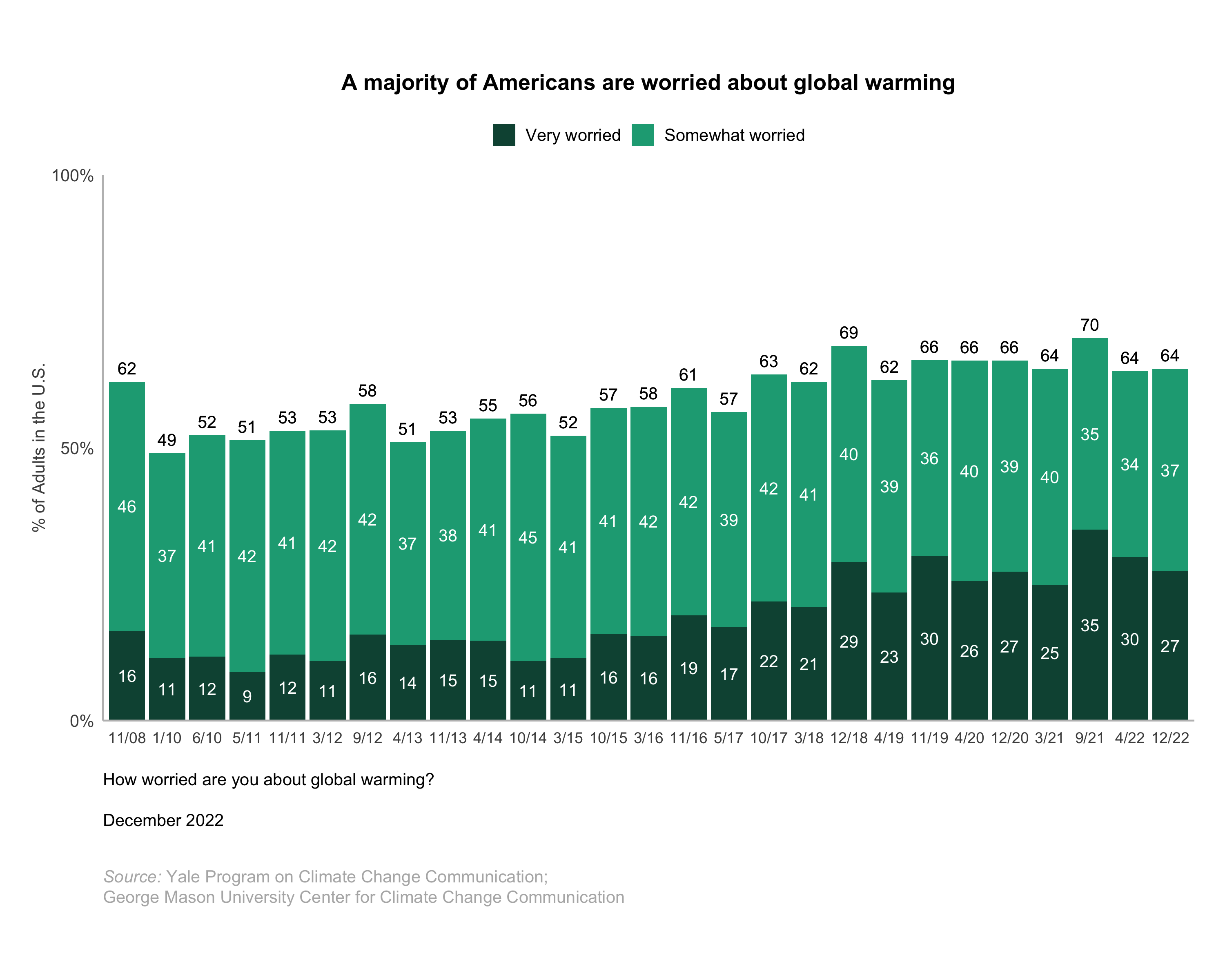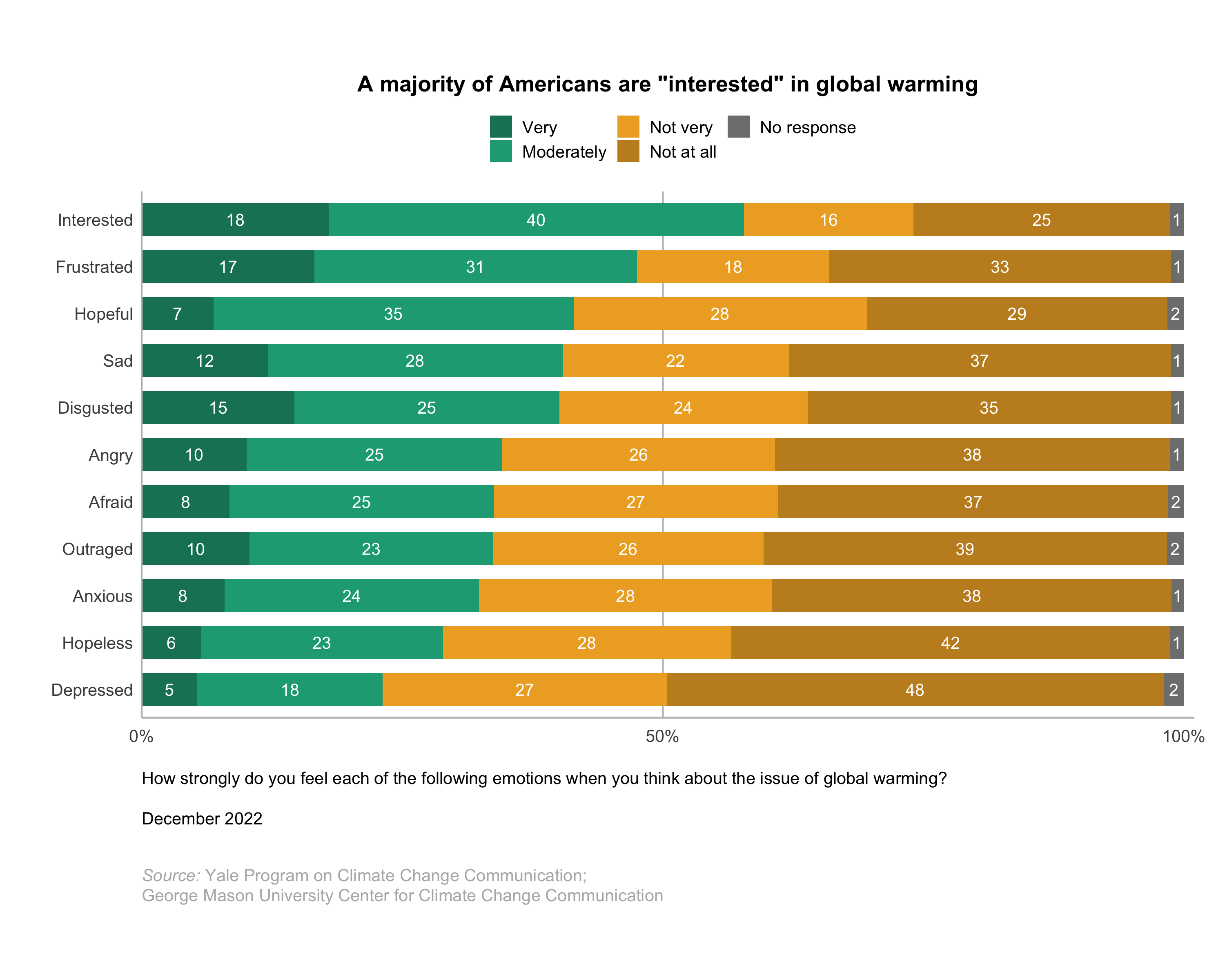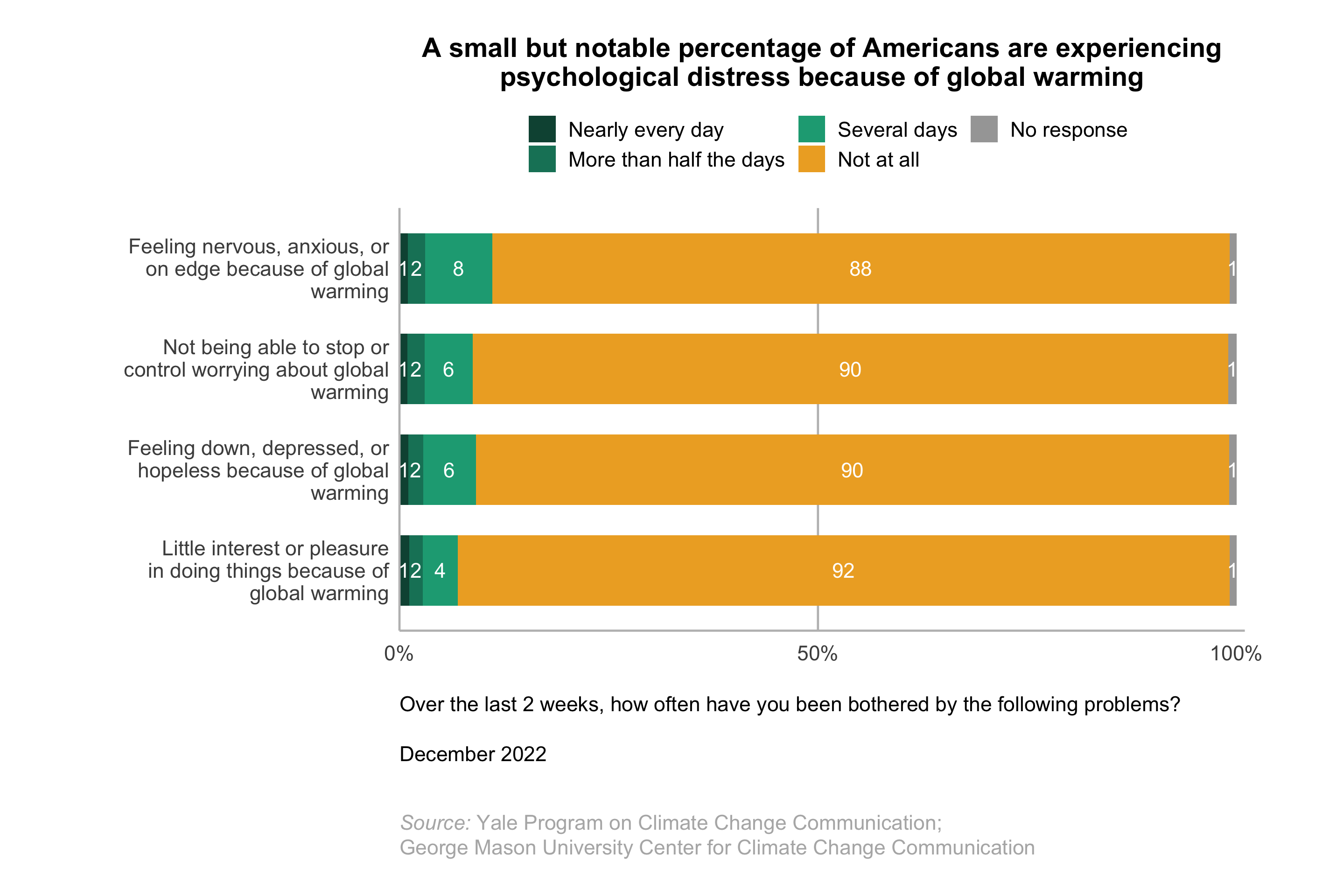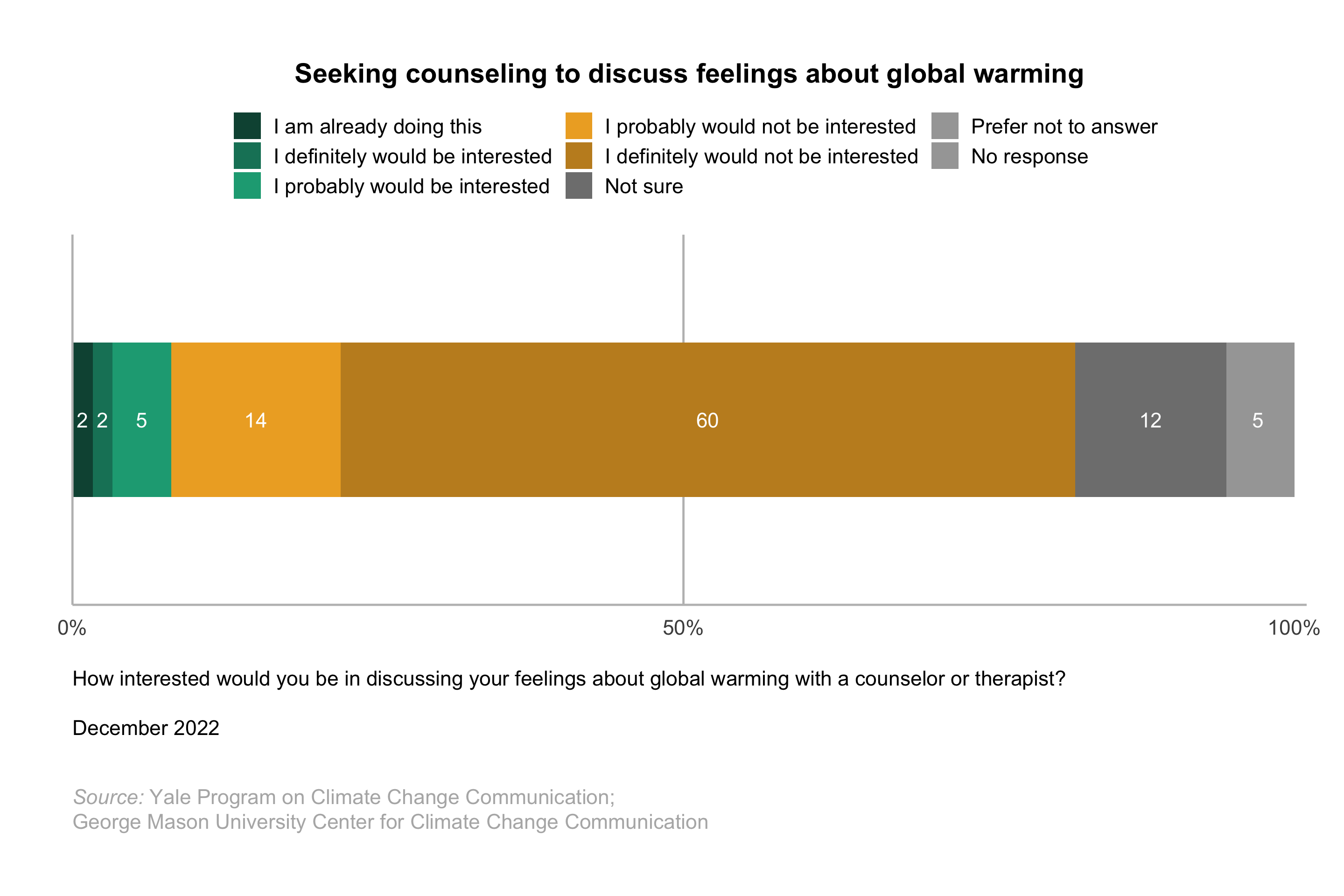Report · Feb 16, 2023
Climate Change in the American Mind: Beliefs & Attitudes, December 2022
By Anthony Leiserowitz, Edward Maibach, Seth Rosenthal, John Kotcher, Jennifer Carman, Marija Verner, Sanguk Lee, Matthew Ballew, Sri Saahitya Uppalapati, Eryn Campbell, Teresa Myers, Matthew Goldberg and Jennifer Marlon
Filed under: Beliefs & Attitudes and Climate Impacts
3. Global Warming, Emotional Responses, and Mental Health
3.1. A majority of Americans are worried about global warming.
A majority of Americans (64%) say they are at least “somewhat worried” about global warming. This includes 27% of Americans who are “very worried” about global warming.
3.2. A majority of Americans are “interested” in global warming.
When asked how strongly they feel various emotions when thinking about global warming, more than half of Americans (58%) say they feel “very” or “moderately” interested. Additionally, four in ten or more say they feel frustrated (48%), hopeful (41%), sad (40%), or disgusted (40%). Fewer say they feel angry (35%), afraid (34%), outraged (34%), anxious (32%), hopeless (29%), or depressed (23%).
3.3. A small but notable percentage of Americans are experiencing psychological distress because of global warming.
To assess anxiety and depression symptoms arising from people’s concerns about global warming, we adapted previously validated brief screening instruments for general anxiety disorder (the GAD-2)Kroenke, K., Spitzer, R. L., Williams, J. B., Monahan, P. O., & Löwe, B. (2007). Anxiety disorders in primary care: prevalence, impairment, comorbidity, and detection. Annals of internal medicine, 146(5), 317-325. doi:10.7326/0003-4819-146-5-200703060-00004 and depression (the PHQ-2).Kroenke, K., Spitzer, R. L., & Williams, J. B. (2003). The Patient Health Questionnaire-2: validity of a two-item depression screener. Medical care, 1284-1292. doi:jstor.org/stable/3768417
We found that about one in ten Americans report experiencing symptoms of anxiety because of global warming for at least “several days” out of the last two weeks, including “feeling nervous, anxious, or on edge because of global warming” (11%) or “not being able to stop or control worrying about global warming” (9%). Similar percentages report experiencing symptoms of depression because of global warming for at least “several days” out of the last two weeks, including “feeling down, depressed, or hopeless because of global warming” (9%) or having “little interest or pleasure in doing things because of global warming” (7%).
3.4. Coping with global warming.
A small but notable percentage of Americans use avoidance strategies to help them cope with global warming. About one in four Americans (27%) say they “try not to think about global warming” and 15% say they “try to avoid information about global warming.”
Some Americans also say they have difficulty coping with global warming – about one in ten Americans (11%) say they “often have trouble stopping myself from reading, watching, or listening to bad news about global warming.” Additionally, some Americans seek social or emotional support to help them cope – one in ten (10%) say they “often seek social or emotional support from other people who share my values about global warming to help me manage my concerns about the issue.”
3.5. Seeking counseling to discuss feelings about global warming.
A total of 8% of Americans say they are either already discussing their feelings about global warming with a counselor or therapist (2%), or would definitely (2%) or probably be interested in doing so (5%). In contrast, about three in four Americans (74%) say they would either probably not (14%) or definitely not (60%) be interested in discussing their feelings about global warming with a counselor or therapist.




